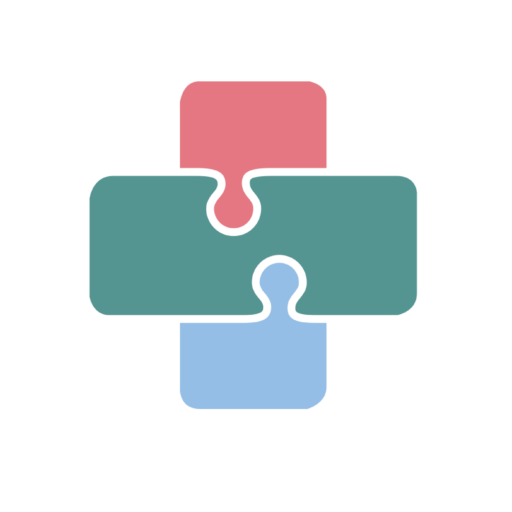As a successful independent patient advocate, I’ve had the privilege of helping countless individuals navigate the complexities of medical billing and health insurance issues. With a profitable practice and a background as a former healthcare administrator, I understand the challenges that come with effective time management in this demanding field. Today, I am excited to share my insights on the importance of effective time management and becoming a calendar ninja.
Time management is not just about managing your schedule; it is about mastering the art of balancing your personal and professional life while staying focused on what truly matters. As a calendar ninja, you will learn how to tame the chaos, conquer overwhelming tasks, and make the most out of every minute.
So, are you ready to unlock the secrets of effective time management? Let’s dive in and discover how you can become a master of your calendar, enhance your productivity, and create a thriving practice as an independent patient advocate.
The Importance of Effective Time Management
Managing time effectively is a critical skill for all independent patient advocates and especially when we are new independent patient advocates. It can mean the difference between feeling overwhelmed and achieving success in both your personal and professional life. Let’s explore why effective time management is crucial and how it can transform your journey as an advocate.
Challenges of Effective Time Management:
Effective time management can be challenging, especially when you have multiple client responsibilities, administrative tasks, and personal commitments. Without a proper system in place, you may find yourself struggling to meet deadlines, feeling stressed, and experiencing a lack of work-life balance. Recognizing these challenges is the first step towards overcoming them.
The Impact of Effective Time Management:
Effective time management is more than just checking tasks off a to-do list. It allows you to take control of your schedule and optimize your productivity. By implementing a system and plan for managing your time, you can experience the following benefits:
- Reduced Stress: When you have a clear plan and know how to prioritize tasks, you can alleviate the stress that comes with feeling overwhelmed. You’ll have a roadmap that guides you through your daily responsibilities, helping you stay focused and organized.
- Increased Productivity: With effective time management techniques, you can optimize your productivity. By allocating specific time slots for different tasks and utilizing strategies like time blocking, you’ll make the most of your working hours. This increased productivity leads to a sense of accomplishment and momentum in your work.
- Goal Achievement: Effective time management enables you to align your daily activities with your long-term goals. By setting specific objectives and breaking them down into actionable steps, you’ll make steady progress towards your desired outcomes. Regularly reviewing and adjusting your goals ensures that you stay on track and make the necessary adjustments along the way.
Actionable Strategies for Effective Time Management:
To enhance your time management skills, consider implementing these unique and actionable strategies:
- Prioritize Your Tasks: Start each day by identifying the most critical tasks that need your immediate attention. Use techniques like the Eisenhower Matrix to categorize tasks based on their urgency and importance. Focus on completing high-priority tasks first before moving on to less critical ones.
- Establish a Routine: Create a daily routine that includes dedicated blocks of time for different activities. For example, allocate specific hours for client meetings, research, administrative tasks, and self-care. Having a structured routine helps you maintain focus and avoid wasting time on non-essential activities.
- Utilize Time-Blocking: Time-blocking involves scheduling specific time slots for different types of tasks. By allocating focused periods for activities, you minimize distractions and increase efficiency. Set aside uninterrupted blocks of time for deep work and avoid multitasking, which can lead to decreased productivity.
- Leverage Technology: Explore time management tools and apps that can assist you in organizing your schedule, setting reminders, and tracking your progress. Calendar apps like Google Calendar or task management tools like Trello can help you stay on top of your commitments and deadlines.
By embracing effective time management strategies, you can navigate your professional journey as an independent patient advocate with confidence and ease. Remember, it’s not about managing every minute of your day but rather finding a system that works for you and allows you to prioritize tasks, reduce stress, increase productivity, and achieve your goals. Stay tuned for the next sections, where we’ll dive into the power of calendars and actionable tips for allocating time effectively.
Unleashing the Power of Calendars
Calendars are more than just tools to keep track of dates and appointments; they serve as powerful instruments for effective time management. As a new independent patient advocate, leveraging the full potential of calendars can significantly impact your productivity and success. Let’s explore why calendars are essential and how you can harness their power.
Calendars as Placeholders and Prioritization Tools:
Calendars act as placeholders for your tasks, responsibilities, and commitments. By scheduling activities on your calendar, you create a visual representation of your time and gain a clear overview of your workload. This allows you to effectively plan and allocate your time based on priorities. When everything is laid out on your calendar, you can easily identify what needs your immediate attention and what can be scheduled for later.
Benefits of Digital Calendars:
Digital calendars offer numerous advantages over traditional paper calendars. They provide flexibility, accessibility, and advanced features that streamline your time management process. Here are some benefits of using digital calendars:
- Flexibility: Digital calendars allow you to make changes effortlessly. You can easily reschedule appointments, move tasks around, or adjust your calendar as circumstances evolve. This flexibility ensures that your schedule remains adaptable to unexpected changes or new priorities.
- Accessibility: With digital calendars, your schedule is accessible from multiple devices, such as smartphones, tablets, or computers. This means you can access and update your calendar anytime, anywhere, ensuring that you stay organized and on top of your commitments.
- Advanced Features: Digital calendar tools offer various features that enhance your time management capabilities. For instance, you can set reminders to keep you on track, color-code tasks for easy identification, and share your calendar with others for collaboration and coordination. These features help you stay organized, reduce confusion, and improve overall efficiency.
Exploring Different Calendar Tools:
There are numerous calendar tools available, and it’s essential to find the one that aligns with your preferences and workflow. Google Calendar is a popular choice due to its user-friendly interface, seamless integration with other Google services, and compatibility with different devices. However, don’t limit yourself to just one option—explore different tools and find the one that suits your needs best.
Some other noteworthy calendar tools include Microsoft Outlook, Apple Calendar, and various mobile apps specifically designed for time management. Experiment with different tools to discover which one provides the features and functionalities that resonate with your working style.
By embracing digital calendars and exploring different options, you empower yourself to efficiently manage your time, prioritize tasks, and stay organized. Remember, your calendar is a dynamic tool that should adapt to your evolving needs. Regularly review and adjust your schedule as necessary to maintain productivity and balance.
In the upcoming sections, we’ll dive deeper into choosing the right calendar tool for your needs and explore strategies for effective time allocation. Stay tuned to unlock the full potential of calendars and become a master of time management in your independent patient advocacy practice.
Choosing the Right Calendar Tool
When it comes to effective time management, choosing the right calendar tool is crucial for new independent patient advocates. As a successful advocate with a profitable practice, I have found digital calendars to be incredibly beneficial in managing my schedule and staying organized. In this section, I’ll share my personal preference for digital calendars and provide guidance on selecting the tool that suits your needs.
Embracing Digital Calendars:
Personally, I highly recommend digital calendars for their convenience, flexibility, and powerful features. Digital calendars, such as Google Calendar, have become an integral part of my time management routine. Here’s why they work for me:
- Convenience: Digital calendars are accessible across multiple devices, including smartphones, tablets, and computers. This allows me to view and update my schedule anytime, anywhere. Whether I’m in a client meeting or on the go, I can quickly refer to my calendar and make necessary adjustments.
- Flexibility: Digital calendars offer unparalleled flexibility. I can easily reschedule appointments, move tasks around, or adjust time blocks as needed. This flexibility allows me to adapt to unexpected changes and accommodate new priorities without the hassle of erasing or crossing out items on a physical calendar.
- Powerful Features: Digital calendars come equipped with features that enhance organization and productivity. Color coding enables me to visually distinguish between different types of tasks or categories. By assigning colors to specific activities, I can quickly identify and prioritize them. Categories help me further segment and manage my schedule, making it easier to allocate time for specific responsibilities. Layers on the calendar allow me to differentiate between my planned schedule (the dream state) and the actual tasks I’m working on. These features empower me to stay organized and maintain a clear view of my daily agenda.
Experiment with Different Calendar Tools:
While I recommend digital calendars, it’s important to find the tool that aligns with your preferences and workflow. Explore different options available, such as Microsoft Outlook, Apple Calendar, or specialized time management apps. Each tool offers unique features and functionalities, so take the time to experiment and discover the one that resonates with you.
Consider factors like user interface, integration with other tools, ease of use, and compatibility with your devices. Remember, finding the right calendar tool is a personal choice, so trust your instincts and select the one that best suits your needs.
Harnessing Organizational Features:
Once you’ve chosen your preferred calendar tool, leverage its organizational features to maximize your efficiency. Color coding is an excellent way to visually differentiate between various types of tasks or categories. Assign specific colors to client meetings, administrative work, personal time, or any other aspect of your schedule. This simple technique allows you to quickly identify and prioritize tasks at a glance.
Additionally, utilize categories and layers on your calendar. Create categories that align with your specific responsibilities or areas of focus. For example, you could have categories like client meetings, research, business development, and self-care. These categories help you allocate time for each aspect of your work and maintain a balanced schedule.
Layers on the calendar can provide a clear distinction between your planned schedule and the tasks you’re actively working on. This separation helps you navigate your day more effectively, ensuring that you’re focused on the right activities at the right time.
By selecting the right calendar tool and utilizing its organizational features, you can establish a solid foundation for effective time management. Experiment with different options, explore their functionalities, and find the system that works best for you. In the upcoming sections, we’ll dive into strategies for allocating time effectively and handling unexpected changes. Stay tuned to unlock the full potential of your calendar and become a master of time management in your independent patient advocacy practice.
Strategies for Effective Time Allocation
As a new independent patient advocate, mastering the art of time allocation is vital for achieving success and maintaining a healthy work-life balance. In this section, I will share actionable strategies to help you optimize your time and prioritize personal well-being.
Setting Boundaries and Allocating Time for Personal Activities:
It’s easy to get consumed by your professional responsibilities as an independent patient advocate. However, it’s crucial to set boundaries and allocate time for personal activities. Here are some tips to help you strike a balance:
- Establish Working Hours: Define specific working hours and communicate them to your clients and colleagues. This helps set expectations and ensures that your personal time is respected.
- Create Personal Time Blocks: Dedicate blocks of time in your calendar for self-care, hobbies, exercise, or spending quality time with loved ones. Treat these blocks as non-negotiable appointments with yourself and prioritize them just as you would any other client commitment.
- Avoid Overcommitting: Be mindful of taking on too many client engagements or additional responsibilities that may encroach upon your personal time. Learn to say no when necessary and be selective about the commitments you make.
The Significance of Self-Care and Prioritizing Non-Negotiables:
Self-care is not a luxury; it is a necessity, especially in a demanding profession like patient advocacy. Consider the following:
- Prioritize Self-Care: Make self-care activities, such as exercise, meditation, or hobbies, a regular part of your routine. Schedule them on your calendar and treat them as essential appointments to nurture your well-being.
- Protect Non-Negotiables: Identify activities that are non-negotiable for you, such as family time, personal development, or rest. Ensure that these non-negotiables are firmly established in your schedule and respected by others.
- Delegate and Outsource: Identify tasks that can be delegated or outsourced, allowing you to free up time for self-care and non-negotiable activities. Consider hiring virtual assistants, using automation tools, or collaborating with trusted professionals to lighten your workload.
The Concept of a “Dream State” and Effective Task Planning:
The “dream state” refers to the ideal version of your daily schedule, where tasks and activities are perfectly planned. Visualizing your day in this way can be a powerful tool for effective time management:
- Plan Your Dream State: Begin each day or week by creating a dream state schedule that outlines your desired tasks, priorities, and time allocations. This provides a roadmap to guide your actions and helps you make intentional choices about how you spend your time.
- Adapt and Adjust: Recognize that the dream state may not always align with reality due to unexpected changes or unforeseen circumstances. Remain flexible and adjust your schedule as needed, while still striving to maintain balance and prioritize important tasks.
- Leverage Technology: Utilize digital tools, such as calendar apps or task management platforms, to visualize and plan your tasks effectively. These tools can help you stay organized, set reminders, and track your progress.
By implementing these strategies, you can allocate your time effectively and achieve a harmonious blend of personal and professional commitments. Remember, self-care and personal time are not indulgences but essential components of a successful and fulfilling career as an independent patient advocate. In the final section, we’ll explore how to handle unexpected changes and emergencies while maintaining effective time management. Stay tuned for valuable insights to help you navigate these challenges with confidence!
Dealing with Unexpected Changes and Emergencies
As an independent patient advocate, you will inevitably encounter unexpected changes and emergencies that can throw your carefully planned schedule off balance. The key to effectively managing these disruptions lies in your ability to adapt and remain flexible. In this section, I will share strategies to help you navigate unexpected changes while maintaining your productivity and focus.
Acknowledging the Inevitability of Unexpected Changes:
It’s important to accept that unexpected changes are a part of life and work. Whether it’s a sudden client request, an urgent matter that requires immediate attention, or an unforeseen personal event, these disruptions can happen at any time. By acknowledging their inevitability, you can adopt a proactive mindset and be better prepared to handle them.
Strategies for Managing Unexpected Changes:
Here are some actionable strategies to help you effectively manage unexpected changes and emergencies:
- Utilize the Flexibility of Digital Calendars: Digital calendars offer the flexibility to reschedule tasks and appointments with ease. When faced with an unexpected change, use your digital calendar to adjust your schedule accordingly. Prioritize the urgent tasks and allocate new time slots for the rescheduled activities. This flexibility allows you to adapt to the new circumstances while ensuring that important responsibilities are not overlooked.
- Communicate and Reset Expectations: When unexpected changes occur, it’s important to communicate promptly with clients, colleagues, or other parties involved. Inform them about the situation, any adjustments to the schedule, and set realistic expectations regarding revised timelines. Open and transparent communication helps maintain trust and understanding, even in the face of unforeseen circumstances.
- Practice Time Blocking: Time blocking is an effective technique for managing unexpected changes. By allocating specific blocks of time for different tasks or categories, you create a structured framework that can accommodate adjustments. If a sudden change arises, you can easily rearrange your blocks to ensure that essential tasks still receive the attention they require.
Adaptation and Flexibility:
The ability to adapt and remain flexible is crucial when faced with unexpected changes. Here’s how you can cultivate these qualities:
- Embrace a Growth Mindset: Adopt a mindset that welcomes challenges and sees them as opportunities for growth. View unexpected changes as chances to learn and improve your problem-solving skills. This positive mindset will help you navigate disruptions with resilience and creativity.
- Prioritize and Reprioritize: When unexpected changes occur, take a step back and reassess your priorities. Determine which tasks are urgent and must be addressed immediately, and which ones can be temporarily set aside or delegated. Being able to quickly reprioritize ensures that you stay focused on what truly matters in the midst of unexpected disruptions.
- Practice Self-Compassion: Remember to be kind to yourself during times of change and emergencies. It’s natural to feel overwhelmed or stressed, but practicing self-compassion allows you to stay grounded and maintain your well-being. Take breaks, practice self-care, and seek support from your network when needed.
By embracing adaptation and flexibility, you can effectively manage unexpected changes and emergencies without compromising your productivity or focus. Remember, these disruptions are an inevitable part of your journey as an independent patient advocate. Adaptation and resilience will not only help you navigate the challenges but also showcase your professionalism and dedication to your clients. Stay tuned for the concluding section, where I will recap the importance of effective time management and leave you with key takeaways to implement in your practice.
Conclusion:
In this blog post, we have explored the significance of effective time management for new independent patient advocates. If you’re looking for further guidance and support in managing your time and calendar, I invite you to learn more about my services inside The Circle. I am dedicated to helping new independent patient advocates take control of their days and execute with intention. Remember, time is a precious resource, and how you manage it can make all the difference in your success as an independent patient advocate. Wishing you all the best in your practice!




[…] When participating in meetings or collaborative projects, set boundaries for the duration, frequency, and purpose. Define the objectives of the collaboration and the outcomes you aim to achieve. This prevents meetings from veering off track and ensures that your time is used efficiently. For more information on setting boundaries around your calendar, you might want to read How to be a Calendar Ninja. […]
[…] Efficiency is the backbone of a successful patient advocacy practice. Take a closer look at your workflow and identify areas that can be streamlined. Integrate cutting-edge tools and systems that not only enhance efficiency but also empower you to take on more clients without compromising the quality of your service. It’s a win-win for both you and your clients. Want more about time management? Check out How to Be a Calendar Ninja! […]